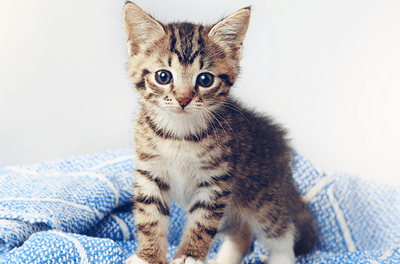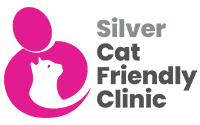Vaccinations
Your new kitten should be vaccinated against three main diseases: Feline Herpesvirus, Feline Calicivirus (collectively known as cat flu) and Feline Panleukopaenia (also known as ‘feline parvo’). We give all of these vaccinations together in one injection to make it more comfortable for your kitten.
 Vaccinations
Vaccinations
- Your new kitten should be vaccinated against three main diseases: Feline Herpesvirus, Feline Calicivirus (collectively known as cat flu) and Feline Panleukopaenia (also known as ‘feline parvo’). We give all of these vaccinations together in one injection to make it more comfortable for your kitten.
- Another vaccination which we offer is Feline Leukaemia virus (FeLV) – which can be combined with the above.
- They need one vaccination at 8-9 weeks old and then a second vaccination after 12 weeks old.
- These must be at least 3-4 weeks apart and your kitten must be at least 12 weeks old to have the second vaccination.
- Your cat will then need annual booster vaccinations with us at Blackrock Vets every year after this.
Worming
- Kittens can pick up worms from their mother and from their litter-mates.
- It is important to treat your kitten with regular worming treatments to prevent weight loss, diarrhoea and ill-thrift which can be caused by parasites.
- Kittens should be wormed every 2 weeks until 12 weeks old, then every month until 6 months old, and then every 3 months ongoing for the rest of their lives. We are here at Blackrock Vets in Dublin to carry out these procedure.
Anti-Flea treatment
- Cats should be treated with an anti-flea ‘spot-on’ treatment monthly that is available from us in Dublin.
- Fleas can be a huge problem in cats, and can lead to a severe skin condition called Flea Allergy Dermatitis (F.A.D.) – so prevention is very important.
- The cat flea can also be passed onto dogs, and if your cat has fleas, you almost definitely have fleas in your house!
Neutering
- In females a neuter is called a ‘spay’, in males it is called ‘castration’.
- A spay is removal of the ovaries and the womb, a castration is removal of the testicles.
- We highly recommend spaying or neutering your cat as this will prevent unwanted pregnancies, reduce the risk of certain types of cancer and can reduce undesirable behaviour such as wandering & urine spraying in males.
- We recommend neutering from 6 months of age onwards
- One of our expert team will advise you on the best plan for neutering or spaying your pet.
Microchipping
- We highly recommend microchipping your cat as it provides proof of ownership, and a form of identification if your cat goes missing.
- A microchip is about the size of a grain of rice and is implanted under the skin at the back of your pet’s neck/ in between the shoulder blades.
- The procedure is very quick and can be performed by a vet or a nurse.
- It is vitally important to register your contact details to your pet’s microchip number so that you can be contacted in case your pet goes missing.
Food
- It is important to feed your pet a high-quality kitten food.
- Kitten foods contain a higher level of nutrients necessary for growth.
- We recommend Burns, Hills, Royal Canin, James Wellbeloved, to name a few.
- If your kitten has soft stools, try changing them onto a ‘sensitive’ kitten diet as the food they currently have might not suit them.
Contact
Contact us at Blackrock Vets in Dublin if you would like further details about vaccinating your cat.

